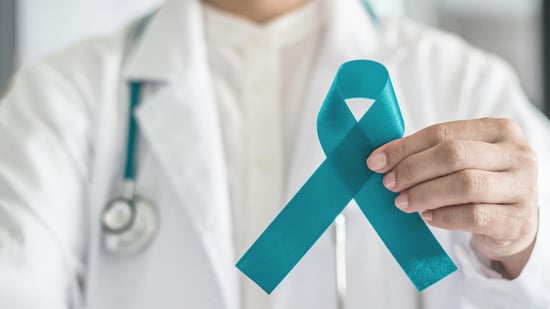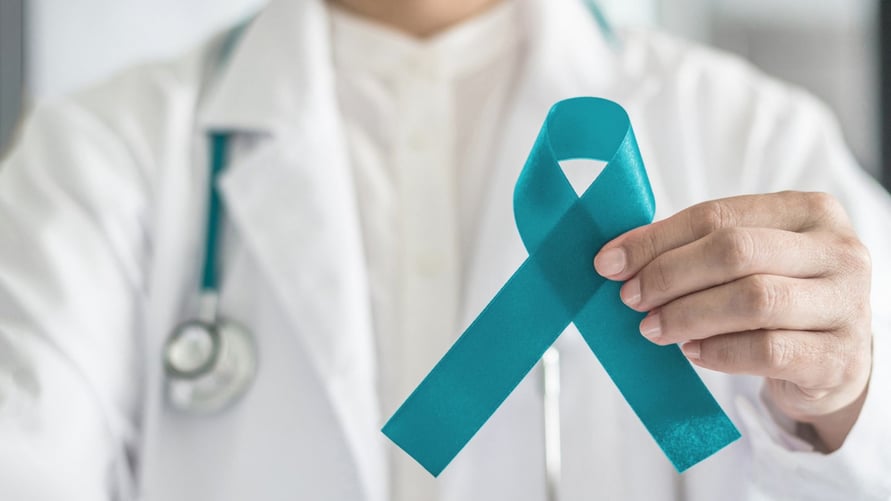A Long Road to PCOS Diagnosis: One Trans Patient's Story
September 18th, 2023 | 11 min. read
By Drake Athey

 For the LGBTQ+ community, finding good healthcare providers who are both inclusive and accessible can be a challenge. This trans PCOS patient's story shows just how crucial it is to find a knowledgeable doctor and an inclusive practice to get the support and resources you deserve.
For the LGBTQ+ community, finding good healthcare providers who are both inclusive and accessible can be a challenge. This trans PCOS patient's story shows just how crucial it is to find a knowledgeable doctor and an inclusive practice to get the support and resources you deserve.
Skip to a section:
- A History of Missed Diagnoses
- Giving Up On Finding Answers
- Finally, A Glimmer of Hope
- PCOS Affects Trans Men Too
- Doctor's Note from Dr. Ilana Ressler
- Unique Challenges for Trans PCOS Patients
- Let's Talk About Discrimination in Healthcare
A History of Missed Diagnoses
Let me start off by introducing myself.
My name is Drake Oliver Athey, and I am a 31-year-old transgender male from a small town in western Nebraska. I am also a PCOS patient. This is my story.
Flashback to 2012 – after suffering a few debilitating panic attacks, involving multiple trips to the emergency room thinking I was having a heart attack, I knew something wasn’t right. The only way I can explain what I was experiencing is that my body didn’t feel right.
Looking back now, I am sure the doctor and nurses on duty thought I was insane, but in my mind, all I knew was that something felt wrong with me and that I needed to find out what it was. These panic attacks happened five times in the span of a couple of weeks – at the same time, I was seeing a doctor for some other health issues.
Giving Up On Finding Answers
After six months of going to my regular doctor and getting a barrage of tests done, I was diagnosed with gastroparesis - but they couldn’t tell me why. My doctor then told me that she didn’t know what was wrong with me and sent me to a surgeon.
That surgeon put me on some medication to help with the stomach issues, but they didn’t help with that feeling that something was wrong with me.
At that point, I had physically and mentally given up. I was anxious, depressed, and couldn’t get work because I couldn’t get out of bed and live a normal life.
Finally, A Glimmer of Hope
In 2013, after months of no improvement, my boss recommended to me a doctor she had been seeing herself. She said that this doctor was knowledgeable and trustworthy and that maybe she could help me figure out what was going on with my own health.
I was reluctant, but the next day I called to schedule an appointment. Luckily, I was able to get in to be seen that very same day. The doctor performed all the usual tests: checked my vitals and weight, then did a bunch of blood work.
I was on my way out of the office shortly after.
At my next appointment, the first words out of her mouth were, "I know what’s wrong, and why you are having so many health issues." I just started bawling – that was the only emotion I could possibly feel after the last two years of literal hell.
I finally calmed down and said, "Lay it on me, doc." She responded with certainty, "Drake, you have polycystic ovary syndrome."
"What is that?" I asked, with a confused look on my face. She explained what it is and what the condition involves, and I was in complete shock. Even at the age of 21, I had never heard of this syndrome that affects so many people.
Note: I say "people" because many individuals (and the PCOS community at large) typically only link this syndrome to women – but not all people who have PCOS identify as female.
PCOS Affects Trans Men Too
Personally, while I identify as transgender and have not medically transitioned, I do identify as male and yet still have some of the same PCOS issues as many cisgender women.
In order to be fully inclusive, I firmly believe that representation of the PCOS community cannot be tied solely to cisgender women.
Even at 31, after being diagnosed nearly 11 years ago, I still struggle to understand PCOS – the syndrome is mind-boggling. I don’t feel that I have many of the "normal symptoms" related to PCOS. I am overweight, but that is nearly the only PCOS symptom I actually have – which may have contributed to the time it took me to get an accurate diagnosis.
I wish more research was being done, as all of us who have been diagnosed with PCOS deserve answers when it comes to this sometimes debilitating disease.
Doctor's Note from Dr. Ilana Ressler
PCOS can manifest itself in many different ways and be different for each individual. However, a person must have typically have two of the following three criteria to be diagnosed with PCOS (in exclusion of other diseases, ruled out by simple blood tests).
- Oligo-ovulation or anovulation: Not having a period, or having long or irregular cycles
- Hyperandrogenism: Higher levels of testosterone, which can show up either in blood work or through physical markers, such as acne or excess hair growth in specific places
- Polycystic ovaries: When ovaries are enlarged and contain many small follicles (may be visible during a transvaginal ultrasound)
In order to get the care you need to get properly diagnosed and manage your PCOS, finding a doctor or clinic that is LGBTQ+ inclusive and knowledgeable is vital.
Unique Challenges for Trans Patients With PCOS
It is clear to me that many doctors are highly uneducated about PCOS.
If you have a few missed periods, they usually prescribe birth control and never really talk about it again - as long as your periods are on track. In reality, PCOS poses more threats than just a few missed periods.
Editor’s Note: Irregular periods are a common symptom of PCOS, and birth control can be one treatment for this disorder – but we need to do more to support each patient holistically, as each case can present differently.
As a member of the LGBTQ+ community, I know it is hard enough to get any type of healthcare. We deserve healthcare that is actually going to improve our prognosis. And we shouldn’t have to fight so hard for quality healthcare.
Let's Talk About Discrimination in Healthcare
Sadly, for many trans, non-binary, and gender non-conforming individuals, discrimination in healthcare is all too common. According to Lambda Legal's "When Health Care Isn't Caring" study, 70% of trans and gender non-conforming patients surveyed have experienced discrimination in healthcare because of their LGBTQIA+ status.
A new doctor's appointment involves constant worrying about whether the provider is going to be accepting or discriminatory - or even knowledgeable about the health issues we may be experiencing.
Personally, every time I see a different doctor, I’m full of anxiety and panic.
It’s hard enough going in to a doctor's office as a transgender male, but it makes it even worse when you go in stating you have a syndrome primarily linked to cisgender women. I want to walk in to each appointment confident my health needs are going to be met – no matter my gender identity or sexual preference!
Sometimes, there are no words to describe how PCOS can affect our lives, but no matter how we identify, we are all in this together and deserve support. We deserve answers and solutions.
Stay positive, keep your head held high, and never let the world tell you what you’re capable of.
Drake Athey (he/him) is an author and LGBTQ+ community contributor to Gay Parents To Be.

